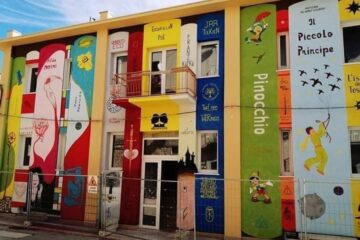She tells the story of her generation in Argentina
PATRICIA LUPPOLI, a “warrior of life”, reflects on her experiences living through Argentina’s tumultuous history, from the dark days of the dictatorship to the challenges faced during the return to democracy and subsequent economic crises.
As Argentina commemorates the 40th anniversary of its return to democracy on October 30, 2023, the nation reflects on the atrocities committed during the military junta’s brutal dictatorship that began in 1976. The famous words of newly elected Argentine president, Raúl Alfonsín, “Nunca más” (“Never again”), echoed the collective sentiment that such evil should never be allowed to resurface. However, Patricia Luppoli, having lived through that turbulent era, questions whether history can truly guarantee such prevention.
Recalling her younger self at 22 years old when the military coup occurred, Patricia describes the impact of those dark times on her life. As a student in a religious school run by the Palotine Fathers, she experienced a personal tragedy when she later learned that these kind and open-minded priests had been murdered during the dictatorship. At that time, the full extent of the horror unfolding in the country was not widely understood, but as more incidents occurred, the terrifying climate of repression and fear became evident.
One such incident that left a lasting mark on Patricia’s memory was when she witnessed a person covered in blood, accompanied by intimidating individuals, board a colectivo (bus) she was traveling on. The fear and shock among the passengers painted a vivid picture of the terror that had gripped the nation.
With Argentina’s eventual return to democracy in 1983, Patricia described the feeling of finally being able to breathe again, as a new air of hope and freedom swept over the nation. However, the challenges were far from over. She highlights the period of hyperinflation, the infamous “Corralito” crisis in 2001, and other significant events in Argentina’s political and economic history as additional obstacles her generation had to endure.
Patricia’s experiences during these difficult times have shaped her into the person she is today. Despite receiving a traditional and strict upbringing, she always harbored a rebellious spirit, refusing to conform to societal norms. This determination to stay true to herself extended to her identity and appearance, and she learned to embrace her uniqueness despite societal pressures to conform.
“I’ve always been rebellious, even in my appearance: in the 1970s, when I was a child, straight hair was fashionable, but I had curly hair. People on the street, especially teenagers, used to shout at me to conform. One day, I looked at myself in the mirror and said, “This is my hair, and this is who I am. I accept myself as I am.”
Throughout her life, Argentina’s resilience as a “survivor” people has been a recurring theme. Patricia’s family faced a severe test during the “Corralito” crisis, a period where the government prohibited withdrawing money from banks, leading many to lose their savings. These experiences taught her that life is an ongoing learning process, fostering resilience and adaptability as she faced each challenge head-on.
Patricia believes that every moment in life offers valuable lessons, shaping individuals into better, more empathetic human beings. Her personal journey through Argentina’s history has shown her the importance of questioning injustice and standing strong against adversity.
As Argentina commemorates its return to democracy and reflects on its past, Patricia Luppoli’s story stands as a testament to the strength of the human spirit in the face of dark times and uncertainty. The lessons she learned during those tumultuous years continue to guide her as she navigates the ever-changing currents of life, forever embracing the role of a “warrior of life.”



